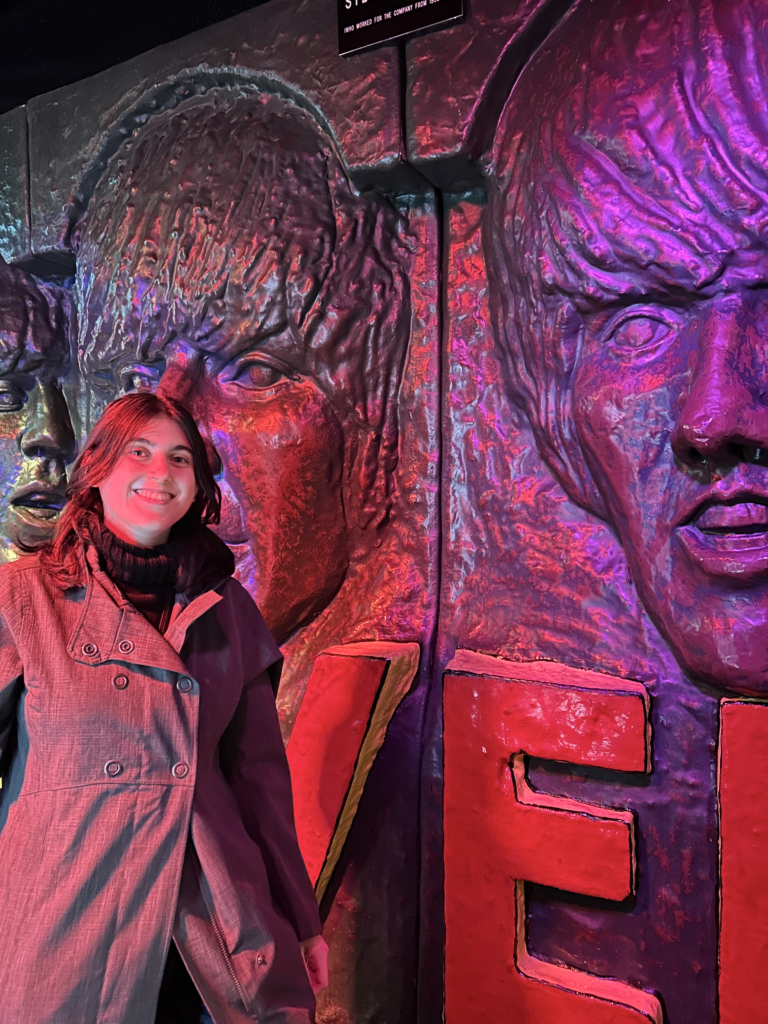By Beatrice Slevin-Trigo, Contributing Writer
When I first said to a Gettysburg acquaintance that I would be studying abroad in Lancaster, I got a puzzled squint in response. “Like, with the Amish?”
Not quite.
Though my semester at England’s Lancaster University has yet to begin, I have spent the past two weeks jumping from London to Manchester to Preston to Liverpool, analyzing artifacts from the world wars and staring up at memorial statues as part of Professor Ian Isherwood’s three-week seminar exploring how the events of WWI and WWII are memorialized by British society.
I am not sure I could have spent my time any better without this seminar. There were times when I wondered how I would navigate my life for the next three months away from home, but after a crowded and humid head start on the London metro — for the first, empty train car was suddenly terminated, and I was crammed into a cramped second before I knew what terminated meant — I felt remarkably at ease. Everything lay ahead to explore and know, and every day was new.
I’ve visited the H.M.S. Belfast, stepped inside St. Luke’s bombed-out church, and explored the Churchill War Rooms. I’ve admired John Singer Sargent’s “Gassed” for not long enough at London’s Imperial War Museum and got the rest of my artwork fix at the National Portrait Gallery. At the Lancashire Archives, I stood inches away from an ornate book of hours that was faded on two of its most intricate pages from having been exposed to sunlight for too long; and, through cold, rainy waits at the bus stop, I visited second-hand bookstores and listened to live music at the famous Cavern Club, where the Beatles once played, though the place has gone through major changes since.

Beatrice Slevin-Trigo pictured while studying abroad in England. (Photo courtesy Beatrice Slevin-Trigo)
The most interesting sight here, though, is the constant juxtaposition of modernity and antiquity. Gothic pillars and glittering stained glass windows share a streetside with glossy, sharp skyscrapers. Antiquarian bookshops are often snuggled up beside chain restaurants. The university bus can take you away from the dense cluster of cobblestone and stoplights into indefatigable green fields punctuated with white sheep, which go on and on until another townscape breaks the pastoral stretch.
One can’t help but notice how consistently this architectural dichotomy stands, and after learning that many of the modern-looking buildings replace those destroyed in the wars, it is especially difficult to resist stopping in the middle of a crowd to look at everything without seeming like a gawking tourist.
Yet the trope of the gawking tourist in the middle of a crowd exists for a reason. Much of travel is noticing — or at least travel grows the habit of slowing down and observing. To me, the most important aspect of travel is this observation, the collation of multiple worlds, all to inform one’s own life with new experiences and habits, which is why our global study programs are so vital. They provide the sort of independent learning experience that little else can deliver, to enrich an otherwise stationary and routine life.
There is nothing like waking up and deciding what to make of the day and where to go, and then learning outside of what one is used to — there is nothing like it, and it has meant everything to me over the past two weeks. I believe it will continue to mean everything to me long past the start of the semester, and still more when I make the eventual eight-hour flight back to Pennsylvania and return to the familiar and the routine.
This article originally appeared on page 11 of the No. 1 October 2024 edition of The Gettysburgian’s magazine.
